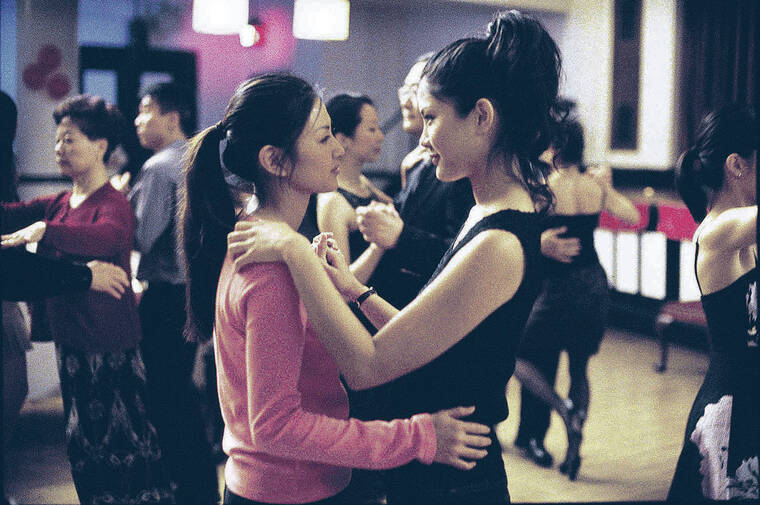The strike is over. Though it decimated the film and television business for most of the year, labor unions showed solidarity in the process. Hollywood studio moguls saw their out-of-touch privilege and out-of-this-world salaries made public, become catchy sound bites, but essentially remain unaffected. Meanwhile, several senior-level studio DEI (diversity, equity and inclusion) executives have been let go or left their jobs. What that means for the film and television business behind, and in front of, the camera is still unknown. It’s vital that all the gains made in recent years continue. I love movies and to have diversity amongst its creators, and what’s seen on screen impacts us all.
My movie-going love began at Queen’s Theatre in Kaimuki, and Waialae and Kailua Drive-ins. It’s at Queen’s, where I longed to be Charlie in Willy Wonka’s glass elevator, and where I finally understood my sister’s high school crush on Al Pacino while watching “Serpico.” It’s where my brother and I began our lifelong obsession with “Singin’ in the Rain.” We dared to be dreamers then.
At drive-ins, I came of age on a steady diet of Carnation’s Malted Milk and Disney, then moved on to snack bar pizza, and Boone’s Farm, when wine with screw tops were for underaged teens. I remember how those wonky metal speakers precariously hung against the car window as the film echoed around us from the other cars, together under the stars.
I also grew up knowing early on that I was different. I knew I was queer before there was a language for it, before pronouns, rainbows, Pride parades and same-sex marriage were even a thought, much less believed possible. So despite my love of cinema, like one of my favorite Gershwin tunes, what I saw onscreen meant love was for everyone else, “but not for me.”
That is, until 2004, when Alice Wu made her directorial debut with the romantic comedy “Saving Face.” It features two Asian American women falling in love. Brilliant, on-the-rise, young surgeon Wilhemina “Wil” Pang (played by Michelle Krusiec) is closeted yet dutiful and committed to her feisty widowed mother, Hwei-Ian (Joan Chen). Just as Wil starts a promising romance with openly gay, sexy prima ballerina Vivian Shing (Lynn Chen), Wil’s mother moves in with her. Hwei-Ian is 48, single and pregnant, and has disgraced her own parents. Wil must choose between her mother and her own truth.
I can’t remember where I first saw “Saving Face.” However, I’m certain it was opening weekend, because to this day I habitually support these little-engine-that-could films on crucial opening weekends because box office — and now algorithms — talk. Since that first time, I’ve watched it countless times, and am always reminded how far ahead of its time it was. Not only does it offer a romantic comedy with an Asian tomboy who gets the girl, it’s positively feminist. There’s a middle-aged woman as a “cougar” before the term ever entered our vernacular. Moreover, there’s talk of menopause, and matter-of-fact mention of choice when it comes to unplanned pregnancy, which is now seen so differently since the overturning of Roe v. Wade.
For me, what also truly resonates is when Wil walks across a crowded dance floor, followed by the watchful eyes of family and friends, and asks Vivian to dance. As the two women awkwardly do so, most people keep dancing while some leave abruptly in protest. Then, in unison Wil and Vivian say, “F—- ‘em,” and kiss. It’s wonderful and revolutionary and gives the coming-out story — particularly in 2004 when it premiered — a rarely seen ending, one in favor of humor and hope.
Years ago, I became friends with film editor Ashley Monti. Born in Toronto and raised in Rome, she is the biggest fan of “Saving Face” I know. To this day, she regularly loans out her personal DVD, determined to hook new fans. She recently told me, “ ‘Saving Face’ helped me come out to myself.”
Ashley and I couldn’t have grown up more differently and yet, in this quirky romantic comedy we both see bits of ourselves. Isn’t that what great films do? They are transcendent and transport us, and hopefully represent ourselves in ways that truly matter.
Donna Choo is a writer and story analyst. She currently works at Sony Pictures Entertainment.

